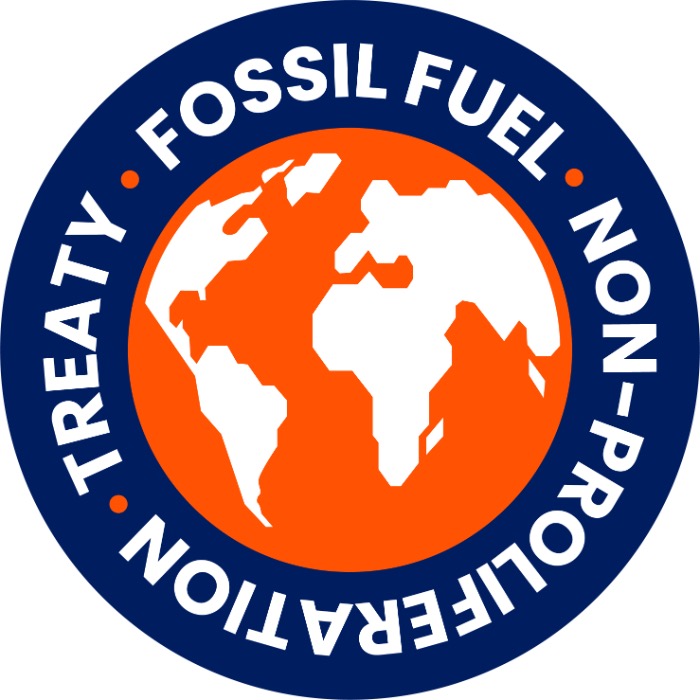Join the Global Call for a Fossil Fuel Treaty: Safe, Renewable Energy for All!

The 30th Conference of the Parties (COP 30) of the United Nations Framework Convention on Climate Change (UNFCCC) will take place from Nov. 10 to 21, 2025, in Belém, Brazil. Delegates from 198 countries that have signed and ratified the UNFCCC will attend, along with representatives from non-governmental organizations, civil society, the private sector, corporations, the financial sector, local governments, scientists, youth, and Indigenous peoples.
COP Conferences: A Brief Background
In the 2012 COP 18 meeting report held in Qatar, fossil fuels were mentioned only once. By contrast, at COP 28 in Dubai, fossil fuels were referenced 46 times. COP 28 marked the conclusion of the first “global stocktake” of global efforts to combat climate change under the Paris Agreement, which aims to limit the temperature increase to 1.5 degrees Celsius. However, progress in climate action—including reductions in greenhouse gas emissions, enhanced resilience to a changing climate, and provision of financial and technological support to vulnerable nations—was slow. Countries agreed to accelerate climate action, particularly the transition from fossil fuels to renewable sources like solar and wind energy, by 2030.
A year later, fossil fuels were omitted from the final text of COP 29, which took place in Baku, Azerbaijan. Approximately 1,700 fossil fuel lobbyists were present in Baku during the conference.
Historic Ruling by the U.N. International Court of Justice
Thoroughly disappointed with the outcomes of past COP meetings, in 2019, 27 students at the University of the South Pacific in Fiji established the Pacific Island Students Fighting Climate Change. They stated a simple truth:
“We seek accountability, a recognition of rights for those most affected by the climate crisis and real protection from historical polluters. We believe in fundamental human rights, the dignity and worth of the human person, in the equal rights of all women and all men, and of all nations, large and small.”
The students persuaded leaders of the Pacific Islands Forum to bring the climate change issue before the U.N. International Court of Justice (ICJ). By 2021, the Vanuatu government sought an “advisory opinion” from the Court, formed a coalition of countries vulnerable to climate change, and began discussions with nations in Europe, Asia, and Latin America to join the initiative.
In 2023, the U.N. General Assembly requested the Court to provide an “advisory opinion,” paying special attention to three U.N. climate treaties: the 1994 UNFCCC, the 1997 Kyoto Protocol, and the 2015 Paris Agreement, which aims to limit the temperature increase to 1.5 degrees Celsius above pre-industrial levels. The Court was also asked to honor the Universal Declaration of Human Rights and to consider states that are “specifically affected” or “particularly vulnerable” to the impacts of climate change.
On July 23, 2025, nearly six years after the students began their organizing efforts, the International Court of Justice issued a strongly worded advisory opinion stating:
- Nations can be held legally accountable for their greenhouse gas emissions.
- Those harmed by human-caused climate change may be entitled to reparations.
- “Climate harms” can be linked to major emitters and fossil fuel producers.
Breaking News: Columbia Announces First International Conference for the Phase-Out of Fossil Fuels
On Sept. 22, 2025, during the United Nations General Assembly (UNGA) in New York City, Colombia announced the First International Conference for the Phase-Out of Fossil Fuels, scheduled for April 2026. This bold initiative aims to bring world leaders together to plan for the swift and equitable phase-out of fossil fuel extraction, with a series of diplomatic conferences to follow.
Listen to Tzeporah Berman, Chair and Founder of the Fossil Fuel Non-Proliferation Treaty, in her TED Talk titled “The Bad Math of the Fossil Fuel Industry,” in which she states, “We currently have enough fossil fuels to progressively transition off of them, but the industry continues to expand oil, gas, and coal production and exploration.”
Around the globe, communities, cities, and countries are rising to the challenge of ending the fossil fuel industry, addressing the role of producer nations, investors, banks, corporations, and the military, which is the highest user of fossil fuels in wars, conflicts, military exercises, supply chains, and on bases.
Take Action: Call for a Fossil Fuel Treaty with the Earth Democracy Committee!
Join the call for a fossil fuel treaty! This treaty will transition us away from fossil fuels to safe, renewable forms of energy! Learn more about how to join the global network calling for this treaty.
Join the Earth Democracy Committee to help with community education, organizing, movement building, and creating materials on the Fossil Fuel Treaty in the US. Please email earthdemocracy@wilpfus.org to join.